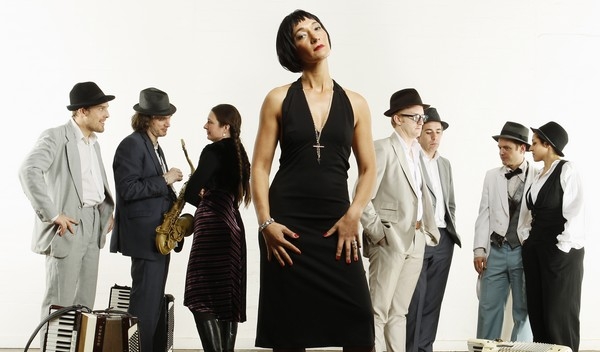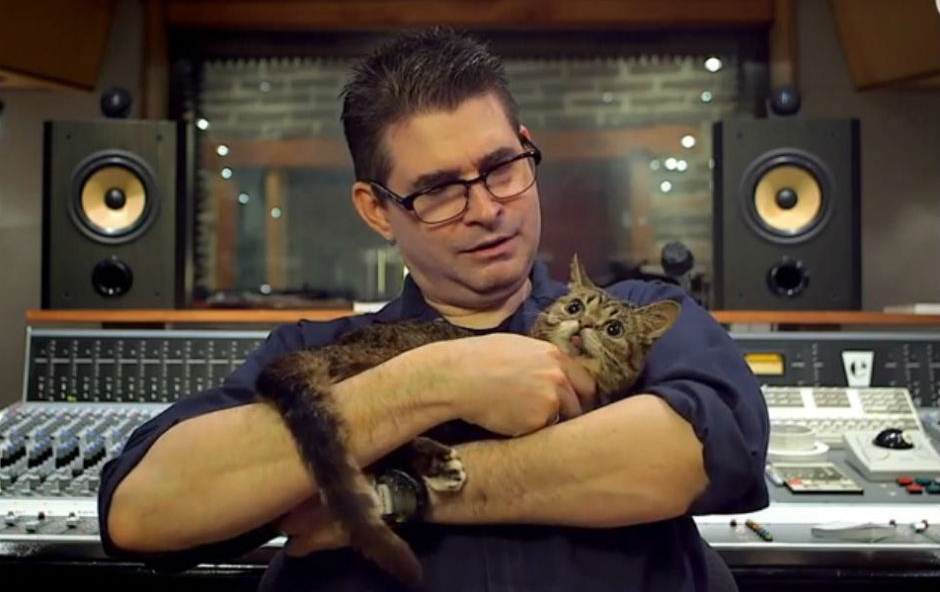“The biggest secret was how my Dad came to defect,” Bosak reflects. “He deserted from the ensemble he was playing with. He was a multi-instrumentalist and was quite versatile as a musician. Music was absolutely his passion. In fact, he stills plays everyday and he’s now 80.”
“The other big secret was that I didn’t know my real nationality until I was 23 – that’s when I found out that I was Croatian, not Yugoslavian. Dad had hidden that because he wanted to assimilate. There was this perception that if you said you were Croatian that you were a terrorist or stating a particular political preference – my parents just weren’t interested in that at all. Under the communist regime, they just weren’t able to identify [as Croats]. In fact, Dad was interrogated at some point and they kept pressing him – ‘where’s your mother from? Where’s your father from?’ You just couldn’t have that discussion about your nationality.”
Bosak’s acutely aware of the fact that the Eastern European migrant community is slowly fading in Melbourne, and with it, these great stories. However, Bosak firmly believes that they deserve to be told and it’s her Dad’s story in particular which gave her a voice. “I never identified as a composer before,” she muses. “I had written a few songs, but I wasn’t a lyricist. I’m a theatre and filmic person. That’s what I brought to this show, using Dad’s story as the impetus. The music came so easily – it’s so connected to my family history and, finally, I had something to say.”
These are themes that have broader relevance too. “Defection, desertion, secrecy – I’m completely obsessed with these ideas and I probably will be for the rest of my career. There’s a deep human element to them – leaving a relationship, leaving a country, being on a boat in the middle of the ocean. While it’s definitely the migrant experience, in some way, these are things that we all face at some point. It’s not bleak though; there’s hope and joy, laughter and finding opportunity that comes with these stories too.”
That her folks grew up under that kind of regime had other repercussions for Bosak. “Secrets, lies and spies,” she laughs. “My parents were really quite paranoid – you know, ‘you’ve got to be careful about this and that’ and they were so bloody good at hiding things. For instance, they used to hide our Easter eggs and my sisters and I would only find some of them, in tears, around Christmas time.”
Her folks divulging the family secrets happened to coincide with music taking precedence in Bosak’s life. “I never expected that I would become a musician,” Bosak recalls. “Music was just a normal thing in my family. At every family gathering, there was always singing and live music. I never grew up wanting to be a musician though; I was interested in doing other things, like being an actress. But in my mid twenties I started singing and drumming and it completely took over. It was such a clear point for me. I can remember seeing Greg Sheehan’s drumming group and I ended up in tears. I remember thinking ‘wow, this is what I want to do’. It was such a clear flip.”
There’s something a little Pan-like about Bosak and maybe it’s inherited. “There’s a long history of tricks and games in my family – we all have it. I carry that theme into the band. That’s why I like musicians who are playful and a little bit cheeky. For instance, there are things that my band won’t find out about or see until the night. It’s great because they don’t know what’s going to happen next either. It’s not just the audience who gets a surprise – they might all get a bit of paper that says ‘do this on the count of three’.”
Bosak has big plans for The Defection Dance Party. “I’m going to do a hundred before I die,” she chuckles. “This first one is in Melbourne, which is pretty special, and then I’m going to do them all over the world for the next, I don’t know, five, ten or 20 years. In terms of form though, I always want things to deteriorate into dancing. In the future, I’m thinking I want some wild DJs at the end and that the whole thing would unfold over four or five hours. It would start in a concert context, but it would develop into a dance party. That’s my biggest dream.”
“When Bregović played at Hamer Hall last year all of the Yugoslavians got up and danced – they didn’t give a shit. I’m a bit over this ‘let’s sit down’ business. People need to loosen up a bit more.”
BY MEG CRAWFORD

